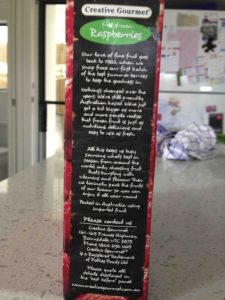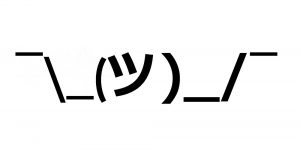From Jan.-April 2015, at least 34 people in Australia developed Hepatitis A linked to frozen, ready-to-eat berries.
 This followed several outbreaks in frozen berries in the EU, grown in various places.
This followed several outbreaks in frozen berries in the EU, grown in various places.
On Friday, Creative Gourmet berries in Australia were once again linked to 4 cases of Hepatitis A.
Food-types think the berries are the same ones from the 2015 outbreak.
Yes, berries are good, yes companies will source the cheapest supplier where night soil may be rampant, and yes this story is weird.
Here’s what happened:
In 2015 Creative Gourmet’s Mixed Berries and Nanna’s range of frozen
berries were owned by the same company.
Ivone Ruiz, the General Manager of Entyce Food Ingredients told Choice magazine, “We purchased the Creative Gourmet brand and some existing stock reserves from Patties in late 2015. The stock had been extensively tested by independent accredited laboratories, all of which cleared the batch for traces of the hepatitis A.”
Testing is a necessary evil, but doesn’t tell anyone much about safety.
Food Standards Australia and New Zealand suggests the batches are related. “These cases have an identical sequence [of hepatitis A] to that of the cases from the 2015 outbreak,” says a spokesperson. “This product was not in the market at the time of the 2015 recall.” A representative from the Department of Health and Human Services in Victoria suggests how the batch could have evaded testing. “There is a possible link. They came in at a similar time to [Nanna’s] berries, but they came in before the test-and-hold [procedures were] put in place at the border,” spokesperson Bram Alexander tells Choice.
Creative Gourmet Mixed Berries contain strawberries, raspberries and blackberries from China, as well as blueberries sourced from Canada.
The berries are packaged in China before being shipped to Australia and are then repackaged in Melbourne.
Entyce says it’s decreasing its reliance on berries sourced from China having recognized “a level of concern that exists in the community.”
 “When we took over the Creative Gourmet brand, over 95 percent of the fruit was sourced from China; we have brought this figure down to 5 percent,” Entyce’s Ruiz tells Choice. “With a number of sourcing contracts expected to cease shortly, 100 percent of all fruit used in the Creative Gourmet brand will be sourced from Canada, Chile, Brazil and Vietnam.”
“When we took over the Creative Gourmet brand, over 95 percent of the fruit was sourced from China; we have brought this figure down to 5 percent,” Entyce’s Ruiz tells Choice. “With a number of sourcing contracts expected to cease shortly, 100 percent of all fruit used in the Creative Gourmet brand will be sourced from Canada, Chile, Brazil and Vietnam.”
The food safety regulator issued the “precautionary” recall on Friday, asking anyone who had bought the Creative Gourmet Frozen Mixed Berries 300-gram product with a best-before date before January 15, 2021 to return it immediately to the supermarket for a refund.
About 45,000 packets of the berries are affected. The berries were sourced from Canada and China and packed in Australia.
Entyce stopped sales of the suspect berries after the 1st reported case on 4 May 2017, but the actual recall did not start until a month later on 3 Jun 2017.
Someone’ got some explaining to do.
Frozen berries are a staple in our household.
I’ve taken to boiling the berries in the microwave for a couple of minutes – on the advice of the Food Safety Authority of Ireland – but it’s unclear how effective this is.
Then they sit in the fridge overnight, ready for breakfast.
Vaccines work, and my family is all vaccinated against Hepatitis A.
Companies, please be clear about where you get your food so consumers can choose (yes, I know it’s another fairy tale).
 The U.S. Food and Drug Administration (FDA) and the Centers for Disease Control and Prevention (CDC), are assisting state and local officials in assessing the risk of hepatitis A virus exposure from contaminated frozen tuna sourced from Sustainable Seafood Company, Vietnam, and Santa Cruz Seafood Inc., Philippines. If unvaccinated consumers have consumed the recalled product within the last two weeks, post-exposure prophylaxis may help prevent hepatitis A virus infection.
The U.S. Food and Drug Administration (FDA) and the Centers for Disease Control and Prevention (CDC), are assisting state and local officials in assessing the risk of hepatitis A virus exposure from contaminated frozen tuna sourced from Sustainable Seafood Company, Vietnam, and Santa Cruz Seafood Inc., Philippines. If unvaccinated consumers have consumed the recalled product within the last two weeks, post-exposure prophylaxis may help prevent hepatitis A virus infection.












